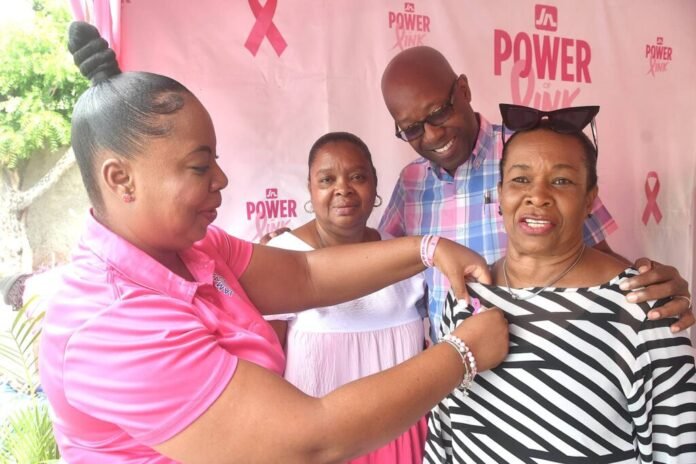Jamaica Cancer Society Calls for Support on World Mammography Day
On a vibrant Friday at the Jamaica Cancer Society (JCS) headquarters on Lady Musgrave Road in St. Andrew, Executive Director Roshane Reid-Koomson made a heartfelt appeal. As she attached a pink breast cancer ribbon pin to Janet Fagan’s dress, the atmosphere buzzed with hope and determination. This event coincided with World Mammography Day, a day dedicated to raising awareness about the importance of early detection of breast cancer.
In collaboration with JN Group and the National Health Fund, the JCS offered 230 free mammograms, a gesture that underscored their commitment to women’s health. “Our current machine is approaching the end of its useful life,” Reid-Koomson explained, emphasizing the urgency of their mission. “We want to ensure that we can continue to offer the same high-quality service that we have been providing for almost 70 years.”
The JCS is launching a $50-million campaign to purchase a new mammogram machine. While they have already secured $6 million from two corporate donors, there’s still a long way to go. “We’re calling on you Jamaicans, locally and abroad, to support the Jamaica Cancer Society as you have been doing for nearly 70 years,” she urged, rallying the community to contribute.
Breast cancer remains a pressing issue in Jamaica, being the leading cause of cancer-related deaths among women. Each year, hundreds of new cases are diagnosed, and health authorities stress that early detection through mammography is crucial. Reid-Koomson’s message was clear: “You can check it, catch it, beat it.” This rallying cry serves as a reminder that regular checks can save lives.
The challenges facing the JCS extend beyond just the aging mammogram machine. In a recent discussion, the organization highlighted the need for a new mobile screening unit, which could cost upwards of $100 million. Michael Leslie, acting executive director, lamented the current state of their mobile program, which has been dormant since 2015 due to obsolete equipment. “We need a new unit, but it’s probably going to cost us over $100 million for the actual extra unit plus a truck,” he stated.
The absence of the mobile unit has had a significant impact. In one year, the society screened fewer than 700 women, far below their target of 1,200 to 1,500. The mobile unit is essential for reaching women in rural parishes like Portland, St. Thomas, and St. Mary, where local mammography services are nonexistent.
Founded in 1955, the Jamaica Cancer Society has been a beacon of hope, promoting early detection and awareness. They provide thousands of screenings annually through their Kingston headquarters and mobile units. However, the future of these vital services hinges on replacing their aging mammography machine before it fails.
As the community rallies around this cause, one has to wonder: will we come together to ensure that every Jamaican woman has access to the life-saving screenings she deserves? The answer lies in our collective hands.

